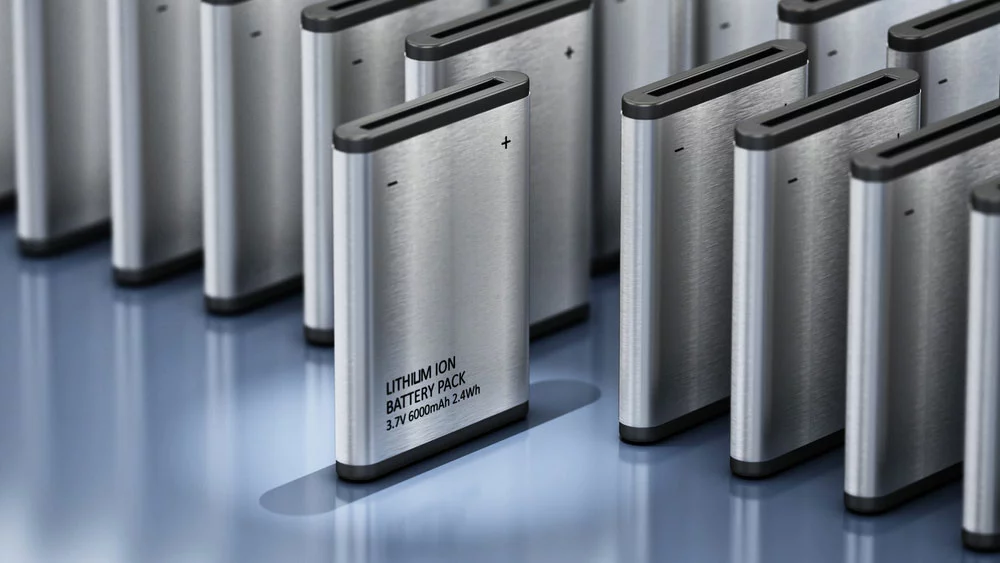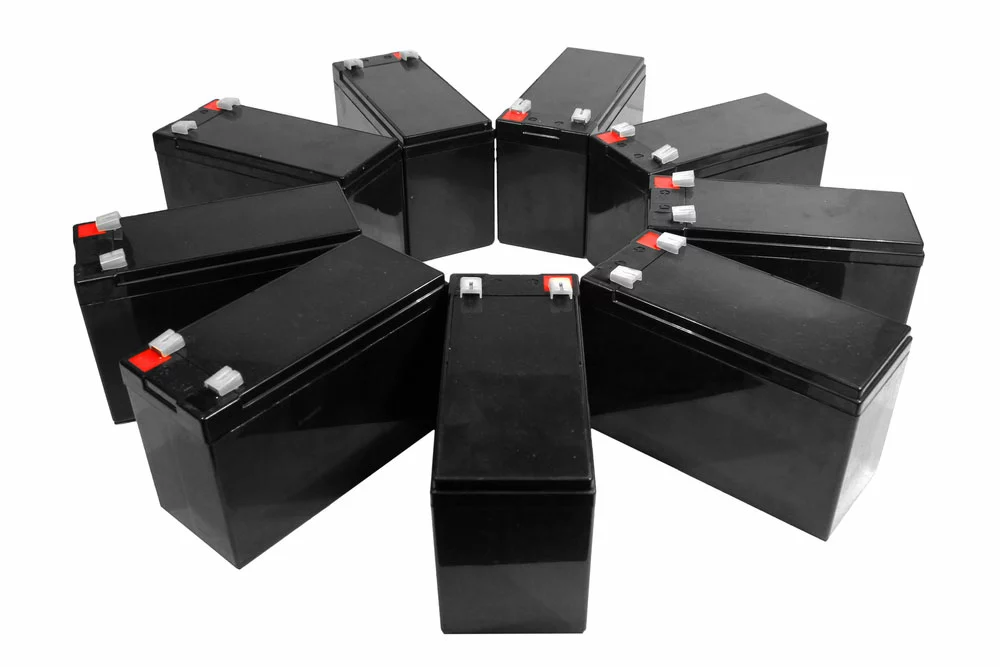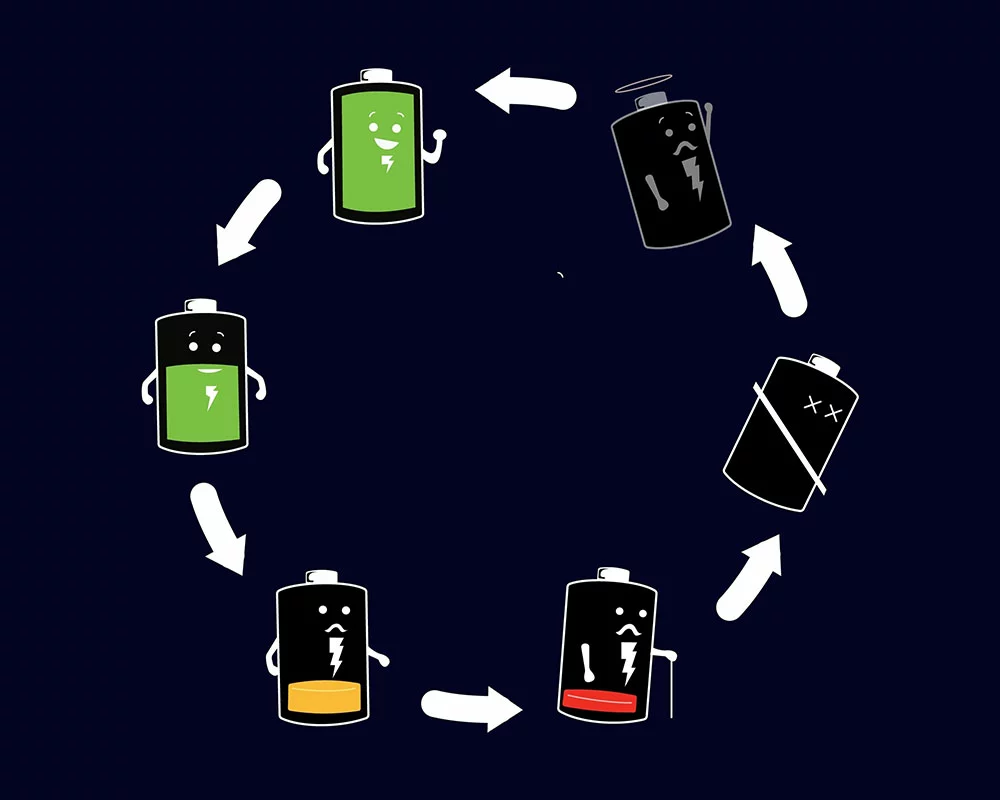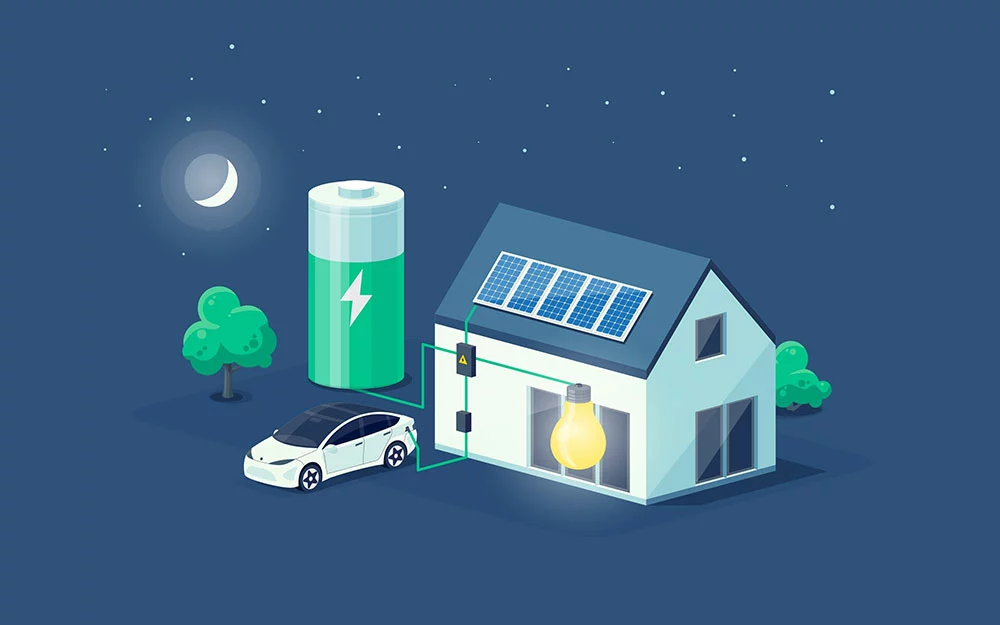There’s no doubt that batteries have come a long way over the years. While lead-acid batteries were once the standard option, lithium-ion batteries are becoming increasingly popular. So, which one is right for you? This guide will take you through everything you need about lithium-ion vs. lead-acid batteries to decide which is best for your needs.
Lithium-Ion vs. Lead Acid Solar Batteries: The Basics
Lithium
Lithium-ion batteries are rechargeable batteries commonly used in today’s electronic devices. LiFePO4 batteries are lighter than traditional lead acid batteries, have a longer lifespan, and can store more energy.
However, the upfront cost of this type of battery is very high. But, in the long-range, lithium-ion batteries are more cost-effective due to their longer lifespan and higher energy storage capacity.

Lithium Ion battery stands out among others
Flooded Lead-Acid (FLA)
Flooded lead-acid batteries are lead-acid batteries that use a liquid electrolyte to store energy. The plates of the FLA are submerged in the electrolyte, which allows it to be recharged.
This electrolyte needs to be periodically refilled, and the batteries should be regularly cycled to keep them working efficiently.
You must also install FLA batteries in a well-ventilated area due to the harmful chemicals and gases produced during charging.
If you consider using these batteries, you should know that they require regular maintenance and can be prone to failure if you don’t care for them.
Sealed Lead-Acid (SLA)
Two types of sealed lead-acid batteries are absorbent glass mat (AGM) and gel. The main difference is the AGM batteries can handle more charge current, recharge quicker, and output more power than gel batteries.
Generally, sealed lead-acid batteries require zero maintenance, making them an excellent option for several applications.

Sealed lead acid batteries
Lithium-ion vs. Lead Acid: Differences Between Lead-acid and Lithium Batteries
Cycle life
Like solar panels, batteries degrade over time and have a limited lifespan. We calculate the batteries’ lifespan by one charge and discharge cycle.
While lead acid batteries can last for around 300-500 cycles, lithium batteries generally have a cycle life of 3000-5000.
You can quickly notice that lead acid batteries’ discharge rate is higher than lithium batteries, making lithium batteries more cost-effective in the long run.
To note, some conditions can affect your battery life, such as extreme temperatures, heavy usage, and if it is not used correctly.

Battery life cycle
Depth of Discharge
The depth of discharge means the amount of energy you can use from a battery before recharge. Lead acid batteries have a 50% depth of discharge.
So, it would be best to charge them again when you deep discharge the battery for 50% of its capacity. If you don’t do that, you will reduce the battery life significantly.
In contrast, lithium-ion batteries have an almost 80% depth of discharge. This difference means that with lithium-ion batteries, you can use more energy from the battery without charging it again so soon. In other words, lithium-ion batteries have higher effective capacity.
Efficiency
The efficiency of a battery is the amount of energy you can use from the total energy stored in the battery.
Lead acid batteries have an efficiency of around 80-85%. On the other hand, LiFePO4 batteries have more than 95% efficiency, making them a much more efficient option for storing energy.
Charge Rate
Lithium-ion batteries have a much faster charging time than lead-acid batteries. While it can take 8 hours to fully charge a lead acid battery, you can fully charge LiFePO4 batteries in just 2 hours.
This higher charge rate can make a significant difference, especially if you need to recharge your batteries quickly.

Charge the battery
Energy Density
Energy density refers to the amount of energy a battery can store per unit of weight or volume. Let’s make it easier if you have two batteries of the same size, but one can store more energy than the other; it has a higher energy density.
So, if you need to produce the same energy from both batteries, the one with a higher energy density(Lithium-ion) will require fewer batteries. This way, lithium-ion will take up less space and weight. Therefore, Lithium-ion batteries are commonly used in EV applications.
Cost
Finally, the cost is one important consideration when choosing between lithium-ion and lead-acid batteries.
LiFePO4 batteries have a higher upfront cost, and they currently cost anywhere from $5,000 to $15,000, including the installation costs. On the other hand, lead-acid batteries will cost thousands of dollars less.
However, considering their lifespan and other factors, lithium-ion batteries have lower long-term costs.
Lithium vs. Lead-Acid: Which Should You Choose?
Full-Time Off-Grid Residence
Flooded Lead-Acid or Lithium
Lithium-ion batteries should be your first choice if you plan to use batteries for a full-time off-grid residence.
They can store more energy per unit of weight or volume, have a longer lifespan, and have a faster charging time.
However, flooded lead-acid batteries may be a good choice if you don’t have budget constraints and are looking for a more reliable option. Put in your mind that they will need regular maintenance and may be more prone to failure.
Off-Grid Cabin / Vacation Home
Sealed Lead-Acid
If you have an off-grid cabin or vacation home, sealed lead-acid batteries may be the best option for you.
Let’s face it; you visit this place once in a while, so you don’t have to worry about regularly maintaining the batteries.
Sealed lead-acid batteries need zero maintenance, and are less expensive than Li-ion batteries, so they are your best bet.

Home electricity scheme with battery energy storage
Battery Backup System
Sealed Lead-Acid or lithium
Again, you use a battery backup system only when the power is out, which is rare. In this case, you will need the battery backup only for a temporary period. Sealed lead-acid batteries are the best option for you as they are cost-effective and need no maintenance.
However, if you live in an area with more frequent power outages, consider lithium-ion batteries, as they will last longer, and you can charge them much faster.
Remote Industrial Use
Sealed lead-acid or lithium
The same is here. Lithium iron phosphate batteries are the best choice if you have a heavy-use industrial application that requires you to use batteries for a long time.
They will have a much longer lifespan compared to lead-acid batteries and can withstand a much deeper discharge.
However, if your application requires less energy storage or a lower depth of discharge, sealed lead-acid batteries are a good option.
Conclusion
Lithium-ion and lead-acid batteries can be good for powering your off-grid residence or business. Generally, lithium-ion batteries are a more efficient and powerful option, but they are also more expensive. So, before deciding which batteries to use, you must consider your budget and application type.
